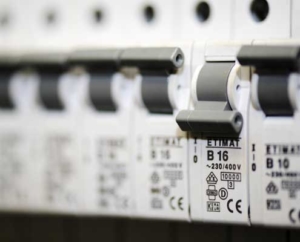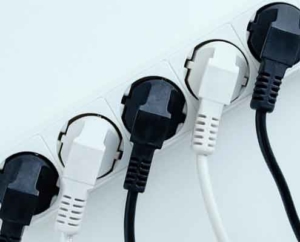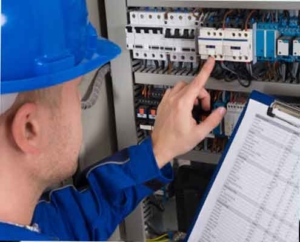What is a ‘Consumer Unit’?
The consumer unit is a central distribution board used to provide an electrical supply to all the circuits on an electrical power system. It is more commonly known as the fuse box and represents an essential part of any building’s infrastructure. Electricity is, of course, a complex element and also has the potential to cause great damage due to the power it carries. As such, consumer units need to be clearly understood and maintained to preserve both your electrical supply and safety.
The Types of Consumer Units
There are four main types of consumer units you are likely to encounter:
-
Split Load Consumer Unit:
Containing both a main switch and a residual current device (RCD), a split load consumer unit is a traditional option and has the benefit of protecting against circuit leakage and nuisance tripping (a trip when no faults are present).
-
RCD Consumer Unit:
typically two to five-way units, an RCD consumer unit is a smaller solution when it comes to electrical supplies for outside buildings such as garages and sheds. We explore the role of RCD’s more in this article “What is an RCD” – https://electricalinstallationservices.co.uk/what-is-an-rcd-2/
-
Dual RCD Consumer Unit:
as the name suggests, a dual RCD consumer unit utilises two RCDs – along with several miniature circuit breakers – and allows you to isolate specific areas in a building containing electrical appliances. This allows circuits in other areas of the property to remain active when one trips.
-
High Integrity Consumer Unit:
this final type of consumer unit uses three neutral bars to separate circuits. As it contains three neutral bars, it is perfect for use in circuits such as those serving refrigeration, alarm and lighting systems which need backup capabilities.
How Does a Consumer Unit Work?
A consumer unit’s objective is to power all the circuits within a building. It achieves this by using the main components of a consumer unit: mains switch, circuit breakers and RCDs. Electricity enters a building through the consumer unit and, thanks to the components it contains, distributes this electricity around the building. All of this distribution is carried out automatically and no interaction from the owner, whilst the electrical supply is correctly distributed, is usually required.
How Often Should a Consumer Unit Be Checked?
Depending on the ownership of a property, the testing period for a consumer unit will vary. Domestic consumer units only require testing every 10 years, but this may be required sooner if problems are suspected. When it comes to properties that are rented to tenants, the landlord is expected to have the associated consumer units checked every five years to verify their safety.
We also cover Circuit Breakers in this article “What is a Circuit Breaker” which will give you an outline of potnetial issues. These issues will give cause to get you consumer unit checked
How Do You Know if You Need a New Consumer Unit?
As long as your consumer unit has not developed any faults, it is safe to continue using it for as long as you deem necessary. It’s important to note, however, that older units may not contain an RCD. Therefore, in the event of a fault, overloaded currents will not be broken and could create a major hazard. In these scenarios, it is recommended to upgrade your consumer unit to ones with an RCD.
Dated consumer units will also be less efficient, so your energy costs will be higher. It can be difficult to accurately date consumer units, but you should look out for tell-tale signs such as rubber or fabric clad cabling. Naturally, any indicators of burn damage will also point towards the fact that your consumer unit needs replacing.
If you feel your fuse box or consumer unit is faulty and needs to be replaced then please give us a call, we’ll be happy to advise you and arrange an inspection.
For additional electrical articles please visit our main BLOG page here





